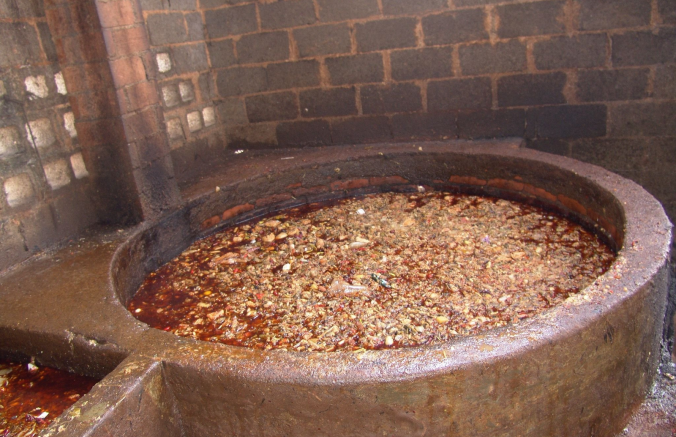Oh my. I’ll never look at my Chinese leftovers in the same way again. At least I know where it goes, after it’s consumed. In China, however, there are literally tons of leftover sweet and sour pork, dumplings, spring rolls, won ton soup and moo goo gai pan. This bounty of leftover slop has been turned into a variety of other cash crops by Chinese restaurant owners who have perfected their recycling skills with an entrepreneurial flare. The Epoch Times reports:
“… North News in China’s Inner Mongolia region reported that of 200 to 300 tons of kitchen slop produced in the 3 million-strong city of Hohhot, only about 60 tons were being legally repurposed to produce aviation fuel. It is feared that the rest is reused in products that end up on dinner plates—in pork feed and cooking oil.
Although Hohhot has a municipal environmental company that takes restaurant slop free of charge to be processed, many establishments have found it more profitable to sell the fetid wastewater and leftovers to local collectors and redistributors.”
I have an understanding of recycling, [because] a family member used to sell used automobile parts. We called him a dealer in secondary industrial raw materials. Radios, tires, transmissions, mufflers, car seats and any part someone wanted was available. That is, if they had their own wrench. But the idea of being a collector of “fetid wastewater” brings a new meaning to environmental dynamics.
This mess of recycled pottage is also fed to the pigs and to humans who eat them
More from The Epoch Times:
“According to North News, slop not given up to the state environmental companies may be resold to pig farms and used as cheap fodder, or reprocessed into common cooking oil for unsuspecting consumers.
Leaving aside squeamishness at eating other people’s half-eaten leftovers, restaurant slop often contains non-food substances like kitchen detergent.
Slop is also dangerous when used as pig fodder, as it contains significant traces of aluminum and lead, in addition to being laden with bacteria, the Henan Business daily reported. The pork itself also poses a risk.”
Some of this putrid mess is sold to private buyers – sounding vaguely familiar to Big Pharma’s vaccine concoctions
The Epoch Times reports:
“‘It’s unknown how much of Hohhot’s kitchen slop is recycled in this manner, but the business is profitable, said Fu Ming, head of the municipal environmental company, in an interview with North News. Restaurants can make enough money to pay multiple employees with the food garbage,” he said.
“‘On an everyday basis, there are a hundred vehicles used to transport slop,’ Fu said, ‘and because restaurants don’t adhere to environmental standards, it is sold to private buyers.'”
If this is what they do with the left over chicken and broccoli, what is done with leftover medical devices like syringes and medical waste? The Epoch Times did a story on that too:
“In China, disposable eating utensils, plastic wrap, bags and even synthetic fibers used in clothing can be produced from recycled materials—but those materials don’t come from the best of sources.
“Without proper regulation, syringes, infusion tubes and the like, often tainted with blood and drug residue, are retrieved in bulk and recycled for plastic products… as it may contain traces of infectious diseases, viruses and chemical or radiological pollutants. However, the business is profitable — 30,000 to 50,000 yuan (between $4,000 and $7,000) a month for a recycling station owner.”
From repurposing nuclear waste into depleted uranium, moo goo gai pan into putrid cooking oil, to used syringes morphed into plastic, it’s man’s worship of money that controls the trade.
(Photo credit: Epoch Times via Sina Blogpost)
Sources:


